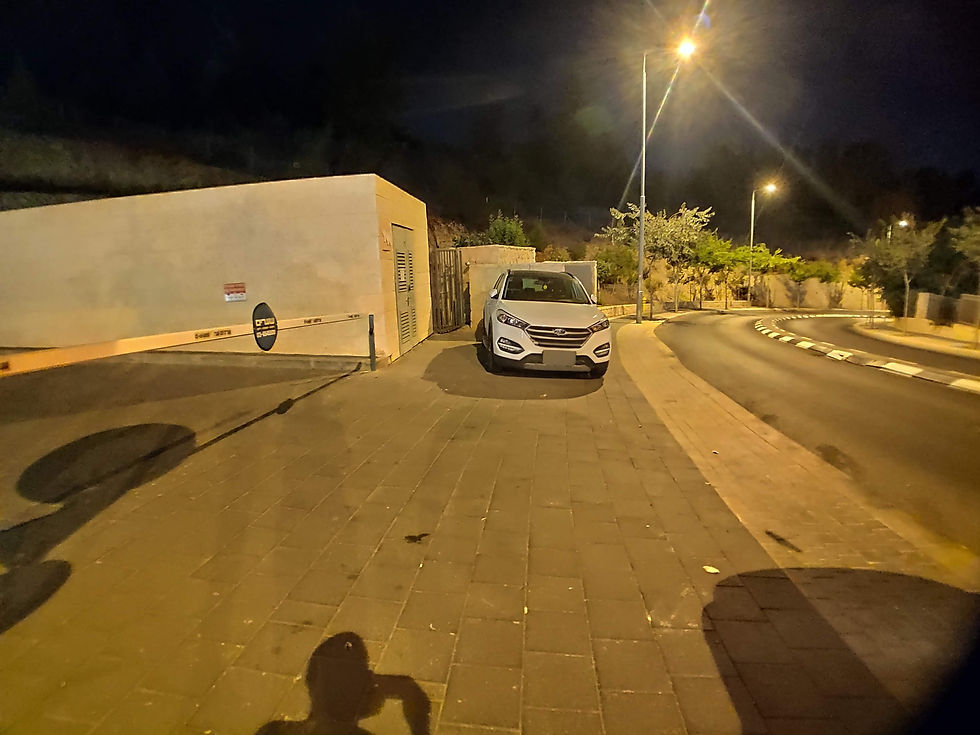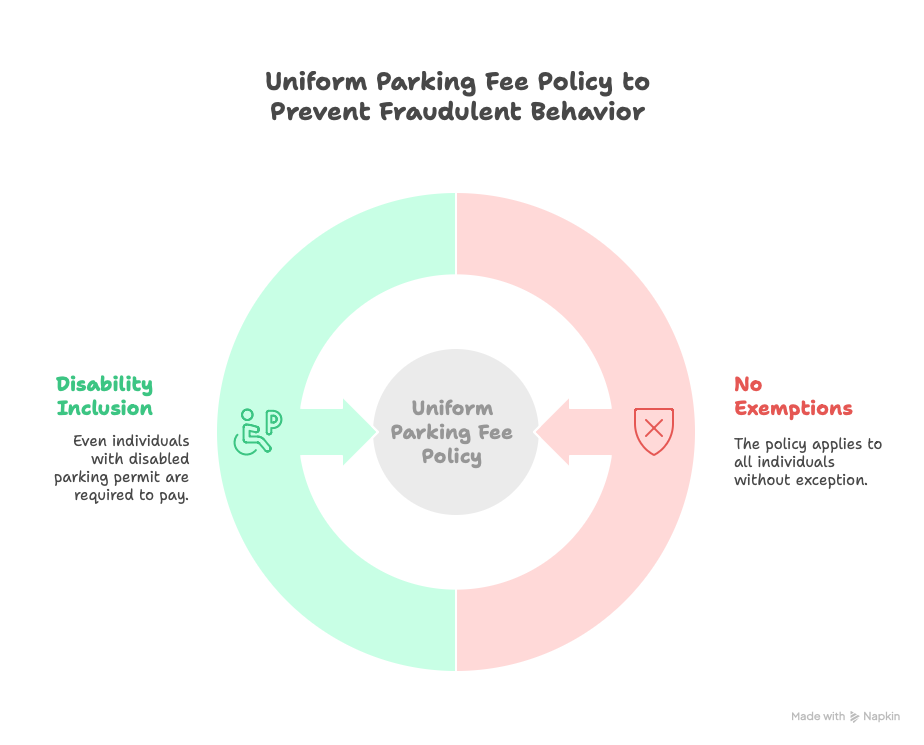3. "All May Park - Everyone Must Pay." Improve accessibility by removing payment exemptions, including for disabled parking permit holders.
- Maier Yagod
- Dec 19, 2024
- 3 min read
Updated: Jul 28, 2025

If a local authority successfully implements steps 1 and 2, there is a concern that drivers might seek loopholes to avoid payment, potentially threatening the success of the policy. However, parking policy should focus on creating availability for close and accessible parking rather than granting exemptions that invite abuse. Therefore, exemptions from parking fees, including for displaying a disabled parking permit, should be eliminated.
While this recommendation may seem heartless, the current parking policy—which is not legally mandated but rather implemented voluntarily by local authorities—exempts anyone displaying a disabled parking permit from parking fees. In practice, this policy undermines accessibility and equal opportunities for the public needing parking spaces, particularly accessible ones.
Since 2002, there has been a 350% increase in the number of disabled parking permits issued, compared to only a 50% increase in the number of licensed drivers. This growth is partly due to an ageing population and technological advancements that make it easier to adapt vehicles for disabled drivers. However, a significant driver of this increase is the full parking fee exemption provided by the permit, creating an incentive to obtain one, sometimes through dubious means.

This has led to widespread misuse of permits by family members of permit holders, even when unnecessary. Consequently, in-demand accessible parking spots are often unavailable, and blue-and-white curbside parking spaces intended to promote vehicle turnover to enhance business accessibility, fail to serve their purpose. In some areas, at any given moment, nearly 50% of parking spaces are occupied by vehicles displaying a disabled parking permit.
Designating accessible parking spots near key locations is an essential accessibility tool. However, fee exemptions for displaying a disabled parking permit hinder accessibility. The misuse of disabled parking permits and other permits granting fee exemptions is not unique to Israel and is a common problem in many countries and cities worldwide. For example, in the UK, over half of disabled parking permits are reportedly misused.
The U.S., with its diverse approaches, serves as a testing ground. Some states provide free and unlimited parking for disabled permit holders, while others require payment from everyone. In states with free parking for permit holders, abuse and forgery of permits are widespread, whereas such issues are almost nonexistent in states where everyone pays.
In recent years, more countries and cities have adopted the U.S. Federal Highway Administration's recommendation to implement an "Everyone Can Park—Everyone Should Pay" policy. This recommendation has shown immediate results: the availability of accessible and paid parking spaces has increased, and the number of requests for disabled parking permits has significantly declined.
Some cities have adopted a "two-tier" policy, distinguishing between types of permits (similar to Israel). A permit equivalent to the "wheelchair" symbol grants free parking, while a permit similar to the "triangle" symbol allows parking in accessible spaces but does not exempt holders from paying for parking in these or regular spaces.
If financial compensation is needed for individuals with lower earning capacities, alternative methods can be used, such as subsidizing accessibility measures through the same revenue stream. These policy steps can be combined with technological tools to prevent unauthorized use of disabled parking permits. However, it's important to remember that sometimes another person drives the disabled individual or is on their way to pick them up. Denying this possibility would penalize honest individuals along with those seeking to evade payment. Thus, it is better to allow all disabled permit holders to park in designated accessible spots but require payment from everyone. This would create a more equitable and accessible urban environment.
Any policy change should be promoted through dialogue and, if possible, with the support of organizations representing the disabled community. For example, in 2014, the city of Baltimore, Maryland, USA, eliminated the free parking exemption for vehicles displaying a disabled parking permit. A study conducted after the policy change found that before the exemption was removed, parking occupancy in the city was at 96%, with 72% of vehicles displaying a disabled permit. After the exemption was eliminated, occupancy dropped to just 77%, indicating a significant reduction in demand for on-street parking.


